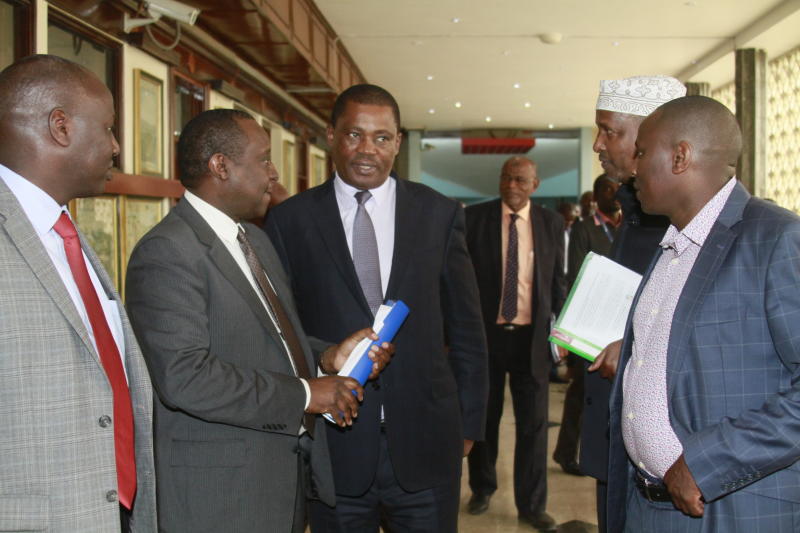×
The Standard e-Paper
Smart Minds Choose Us

Treasury Cabinet Secretary Henry Rotich today meets Members of Parliament on the second of a series of crisis talks to explore options for financing more than Sh800 billion in public debt repayments due this year.
This comes on the back of mounting opposition against a 16 per cent Value Added Tax, (VAT) slapped on petroleum products introduced this month that has increased the cost of basic commodities and threatened to exert inflationary pressures on low-income Kenyans.